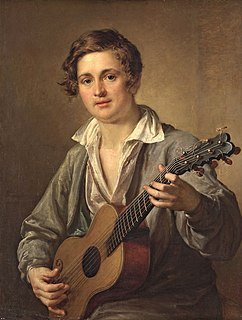
Jean-Luc Perrot (born 23 May 1959 in Moulins, Allier, in Central France) is a French organist, carillonneur, composer and musicologist.

Jean-Luc Perrot (born 23 May 1959 in Moulins, Allier, in Central France) is a French organist, carillonneur, composer and musicologist.
Jean-Luc Perrot is agrégé of musicology, Doctor of literature and arts (musicology), lecturer at the École Supérieure du Professorat et de l'Éducation (former IUFM) of Saint-Étienne after being a lecturer at the Jean Monnet University of this same town, where he previously taught organology, accompaniment and free value Arts Lyriques. A pupil of Roland Meillier in piano at the conservatoire à rayonnement régional de Saint-Étienne , he studied the pipe organ (an instrument he discovered at the age of 13 in 1972), under the leadership of Michel Chapuis, Jean Boyer, as part of Summer Academies. The holder of the historical organ Callinet (1837) of Notre-Dame in Saint-Étienne, his thesis on L'orgue en France de 1789 à 1860 led him to discover many forgotten sheet music. In January 2013, he was appointed to replace Henri Delorme on the François-Henri Clicquot organ in Souvigny, alongside Madeleine Cordez and Pierre Dubois. He is the author of several articles, analyzes, CD booklets, and historical notices. He also plays the harmonium, the harpsichord and the carillon.
His recordings L'Héritage de l'orgue classique, Suites et versets (on the organ of La Chaise-Dieu), Beauvarlet-Charpentier à Souvigny, Maîtres français du XVIIe à Pommiers en Forez (as harpsichordist), four-handed works on the large organ of the Cathedral of Rodez in the company of Georges Lartigau and recently a CD devoted to the unpublished works of Michel Corrette at La Chaise-Dieu showed his attachment to rare music scores. His last recording on the organ of Villerupt is devoted to a certain number of forgotten Romantic composers (Petrali, Smart, Brosig, La Tombelle, Becker). His concerts have taken him all over France but also in Italy, Poland, Germany, Spain and Canada. He has recently performed several improvisational experiments, notably in long sessions of accompanying silent films.
Alongside his teaching activities (he has deepened pedagogy at the University Institute of Teacher Training and gives many courses and master classes), he founded the Baroque ensemble La Clémence d'Urfé. Jean-Luc Perrot is also a composer: He has written several pages for organ alone and organ with 4 hands, works for choir, carillon, or various formations of chamber music. His first Suite à quatre mains pour l'orgue dans le style français, including in particular a third in size entitled Le tombeau de Georges Cziffra was published by La Sinfonie d'Orphée. [1]
He also gives numerous lectures both in France and abroad, for associations, for the CNRS, or at international conferences (Brussels, Paris, Poland). As a musicologist, his articles were published in the Dictionnaire des musiciens du XIXe siècle, the encyclopedy Die Musik in Geschichte und Gegenwart , and in collaboration with the Observatoire musical français (Paris-Sorbonne University)
He collaborated in the publication of facsimile works in the series Patrimoine et Mémoire de l'orgue, at éditions Musicreprints (works by Benaut, Miné, Daussoigne-Méhul, Batiste). He is secretary of the Cavaillé-Coll Association.
Jean-Luc Perrot is chevalier in the Ordre des Palmes académiques.

François-HenriClicquot was a French organ builder and was the grandson of Robert Clicquot and son of Louis-Alexandre Cliquot, who were also noted organ builders.

The term romance has a centuries-long history. Applied to narrative ballads in Spain, it came to be used by the 18th century for simple lyrical pieces not only for voice, but also for instruments alone. The Oxford Dictionary of Music states that "generally it implies a specially personal or tender quality".

Michel Corrette was a French composer, organist and author of musical method books.

Pierre Eugène Charles Cochereau was a French organist, improviser, composer, and pedagogue.

Claude-Bénigne Balbastre was a French composer, organist, harpsichordist and fortepianist. He was one of the most famous musicians of his time.
André Edouard Antoine Marie Fleury was a French composer, pianist, organist, and pedagogue.
François-Lamathe Dom Bédos de Celles de Salelles was a Benedictine monk best known for being a master pipe organ builder.
Henri Ledroit was a French counter-tenor, the first in France of the modern revival in that voice range. Originally training to be a baritone in 1972 he met Alfred Deller and decided to train as a countertenor. He made many of the earliest recordings of pieces later to become standards of baroque countertenor repertoire - for example his Orphée Descendant aux Enfers H 471 of Marc-Antoine Charpentier.
Claude-François Clicquot was a French organ-builder, son of the celebrated François-Henri Clicquot. During and after the French Revolution he saved many organs in Paris and in the provinces.

Souvigny Priory, in the commune of Souvigny, Allier, France, in the centre of the old province of the Bourbonnais, was formerly a Cluniac priory, of which the church remains in operation.

Marina Nikolayevna Tchebourkina is a French and Russian organist and musicologist. She has a Doktor nauk degree in Science of the Arts. Marina Tchebourkina is known as an expert in French Baroque organ art and an ambassador of Russian organ music.
Jean Henri Marcel Boyer was a French organist and a professor of organ at several institutions including the Conservatoire national supérieur musique et danse de Lyon.
Marius André Gueit was a 19th-century French organist, cellist and composer.
Norbert Stéphane Jean-Marie Dufourcq was a French organist, music educator, musicologist and musicographer.
Charles-Alexis Chauvet was a French organist and composer.
Guillaume Lasceux was a French organist, improviser and composer.
Ernest Grosjean was a French organist and composer.
Jean-Patrice Brosse was a French harpsichordist and organist.
Nicolas-Joseph Wackenthaler was a French organist and composer.
Georges Guillard is a French organist, former holder of the Great Organ of the Notre-Dame-des-Blancs-Manteaux church in Paris.